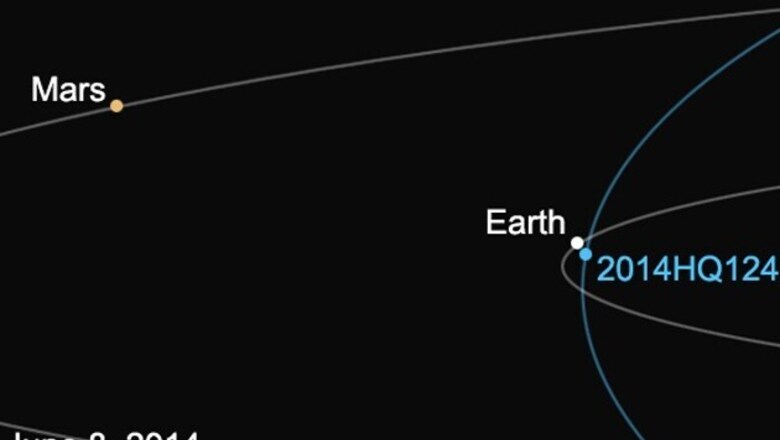
views
California: A 1,000-feet wide "beast" at a speed of 50,400 km per hour - that could wipe out an entire city - will come within a range of a million miles of earth on Sunday. The asteroid will, however, safely pass earth from a distance of 1.25 million kms - more than three times farther away than our moon.
Nicknamed the "Beast," the mighty rock may have caused an explosion measured in megatons and wipe out a city if it were to hit earth, NASA scientists said.
Designated "2014 HQ124", the asteroid was discovered on April 23, 2014, by NASA's NEOWISE mission, a space telescope adapted for scouting the skies for asteroids and comets. "2014 HQ124" is designated a "potentially hazardous asteroid" (PHA) by NASA.
There are currently 1,484 known PHAs but none pose a significant near-term risk of impacting earth.
"There is zero chance of an impact," said Don Yeomans, manager of NASA's near-earth object program office at NASA's Jet Propulsion Laboratory in Pasadena, California. "In fact, it's fairly common for asteroids to pass near Earth. You'd expect an object about the size of 2014 HQ124 to pass this close every few years."
Yeomans said that 2014 HQ124 is a good target for radar observations using NASA's Deep Space Network antenna at Goldstone, California, and the Arecibo Observatory in Puerto Rico, shortly after the closest approach on June 8. Radar measurements of asteroid distances and velocities often enable computation of asteroid orbits much further into the future than otherwise known.
NASA detects, tracks and characterises asteroids and comets passing close to Earth using both ground - and space-based telescopes.
The Near-Earth Object Program, commonly called "Spaceguard," discovers these objects, characterises a subset of them and identifies their orbits to determine if any could be potentially hazardous to our planet. To date, US assets have discovered more than 98 per cent of the known near-Earth objects.
(With inputs from IANS)




















Comments
0 comment